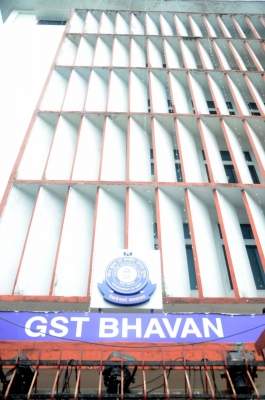New Delhi (IANS) The Goods and Services Tax (GST), often hailed as the “biggest tax reform” in India, has evolved over the years, and the weighted rate of GST has declined in the past few years to 11.6 per cent from 14.4 per cent in May 2017.
The Finance Ministry on Monday cited data from Reserve Bank of India (RBI), to show that in May the weighted GST rate was at 14.4 per cent and in December 2018 and September 2019 was at 11.6 per cent. In a tweet, the ministry said that the rate reduction brought benefit of Rs 1 lakh crore every year.
In a series of tweet on the evolution of GST, the Finance Ministry said that rates of 400 goods and 80 services have been reduced since the roll out of GST.
The Ministry tweeted about the progress made in the indirect taxation system on the death anniversary of former Finance Minister Arun Jaitley, during whose tenure the GST was brought in.
It noted that once GST was implemented, the tax rate on a large number of items was brought down. As of now, the 28 per cent rate is almost solely restricted to sin and luxury items. Out of a total of about 230 items in the 28 per cent slab, about 200 items have been shifted to lower slabs
“Now, businesses with an annual turnover of up to Rs 40 lakh are GST exempt. Initially, this limit was Rs 20 lakh. Additionally, those with a turnover up to Rs 1.5 crore can opt for the Composition Scheme and pay only 1 per cent tax,” said a tweet.
“It is now widely acknowledged that GST is both consumer and taxpayer-friendly. While the high tax rates of the pre-GST era acted as a disincentive to paying tax, the lower rates under GST helped to increase tax compliance,” said another tweet.
Another tweet said that the taxpayer base has almost doubled since the roll out of GST. The numbers of assessee covered by the GST at the time of its inception were about 65 lakh. Now the assessee base exceeds 1.24 crore, it said.
All process in GST have been fully automated. Till now 50 crore returns have been filed online and 131 cr e-way bill generated, the ministry said.
Two major reform steps, GST and the Insolvency and Bankruptcy Code were implemented during the tenure of Jaitley as the Finance Minister.

